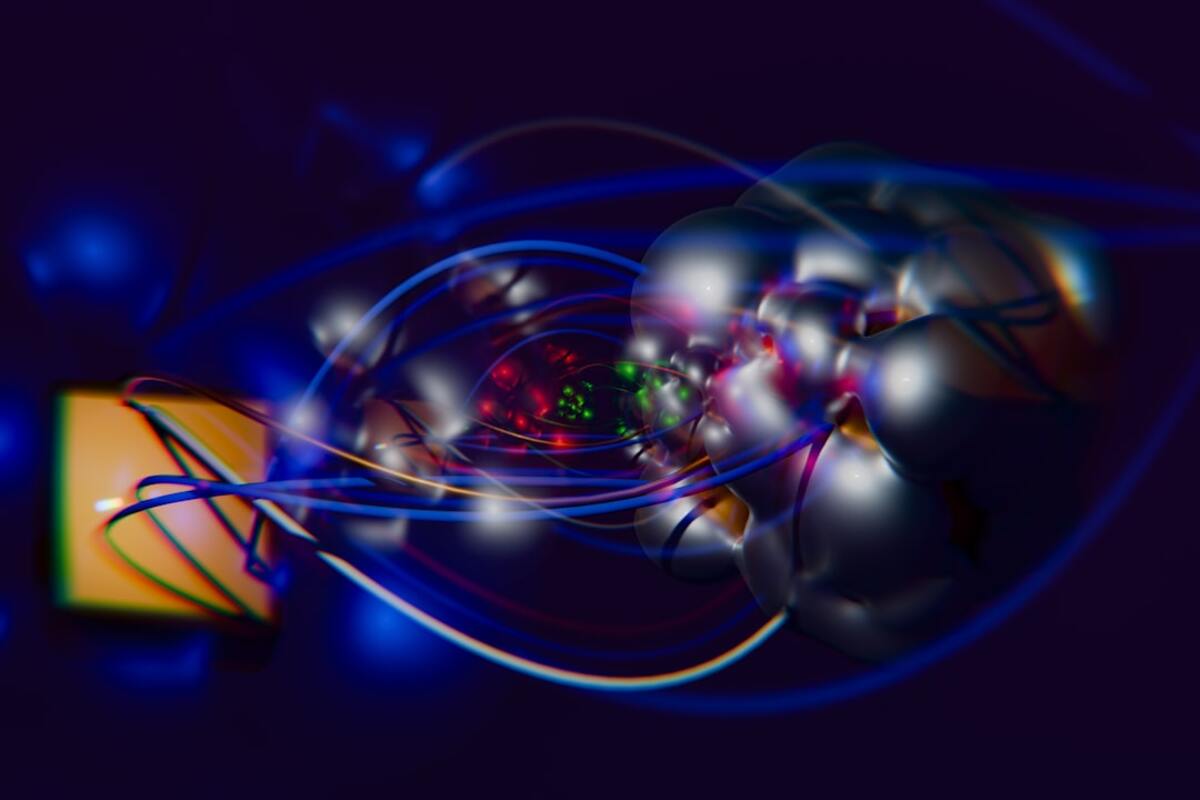Quantum Computing in Drug Discovery: A New Frontier
Quantum computing is set to revolutionize drug discovery, offering unprecedented computational power to tackle complex biological challenges.

- Quantum computing can simulate molecular interactions with high precision.
- It accelerates the identification of potential drug candidates.
- The technology is still emerging but promises breakthroughs in pharmaceuticals.
Understanding Quantum Computing
Quantum computing represents a paradigm shift in computational technology, leveraging the principles of quantum mechanics to process information in fundamentally new ways. Unlike classical computers that use bits as the smallest unit of data, quantum computers use quantum bits, or qubits, which can exist in multiple states simultaneously due to the principle of superposition. This allows quantum computers to perform complex calculations at unprecedented speeds.
Another key aspect of quantum computing is entanglement, which enables qubits that are entangled to instantly affect each other's state, no matter the distance apart. This interconnectedness can be harnessed to solve certain problems much faster than classical computers, making quantum computers particularly well-suited for complex simulations and optimizations.
Applications in Drug Discovery
The pharmaceutical industry stands to benefit immensely from the capabilities of quantum computing, particularly in the realm of drug discovery. The process of discovering new drugs involves understanding the interactions between molecules, predicting how a drug will behave in the human body, and identifying potential candidates that can effectively treat a disease with minimal side effects. These tasks require enormous computational power, often beyond the reach of classical computers.
Quantum computers, however, can manage such tasks with greater accuracy and efficiency. They can simulate molecular interactions at a quantum level, allowing researchers to explore a vast space of chemical possibilities quickly. This capability is essential for evaluating the potential effectiveness and safety of new drugs.
| Classical Computing | Quantum Computing |
|---|---|
| Uses binary bits (0s and 1s) | Uses qubits (can be 0, 1, or both simultaneously) |
| Processes information sequentially | Processes massive parallel computations |
| Limited by current computational power | Can potentially solve problems exponentially faster |
Challenges and the Future
Despite its potential, quantum computing in drug discovery is still in its infancy. Significant challenges remain, including the development of stable and scalable quantum hardware, error-correction methods, and algorithms tailored for drug discovery. Furthermore, the field requires interdisciplinary collaboration, merging insights from quantum physics, chemistry, biology, and computer science.
Several companies and research institutions are making strides in this area. Google, IBM, and startups like Rigetti Computing are pioneering advancements in quantum hardware, while pharmaceutical companies such as Bayer and Boehringer Ingelheim are exploring partnerships to integrate quantum computing into drug discovery pipelines.
As the technology matures, the impact of quantum computing on drug discovery could be transformative, leading to faster development of new therapies, personalized medicine, and a deeper understanding of complex diseases. The promise of quantum computing extends beyond pharmaceuticals, with potential applications in material science, cryptography, and optimization problems across various industries.
